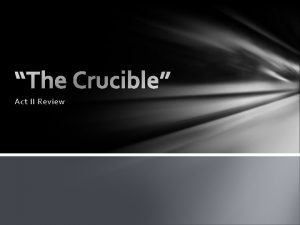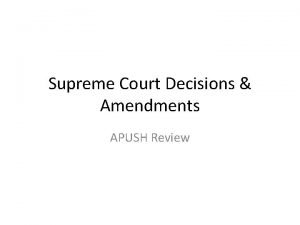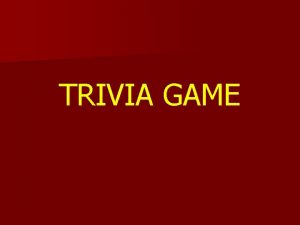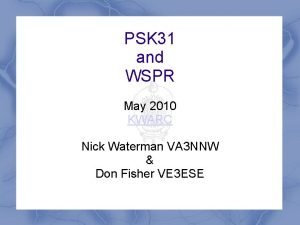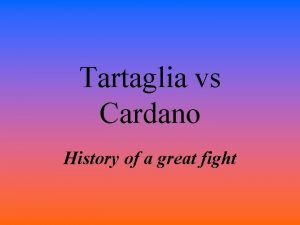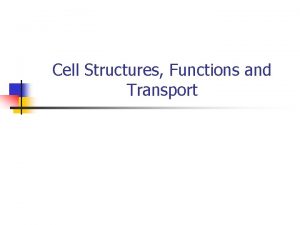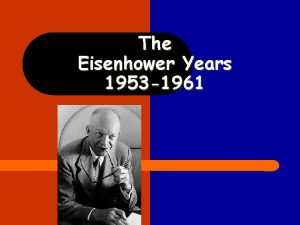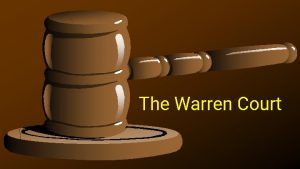The Warren Court The Warren Court Nickname of





- Slides: 5

The Warren Court

The Warren Court Nickname of the Supreme Court from 1953 – 1969 Named for the Chief Justice, Earl Warren Critical to protection and expansion of individual rights Neutral court or judicial activists? Critics said that expanding individual rights should be left to the elected branches Should be Congress making these decisions Thought the Court was overstepping

Expanding Individual Rights Freedom of Speech (Yates v. United States, 1957) Free speech could not be restricted because of your political affiliation Could not deny the Communist Party freedom of speech Freedom of Religion (Engel v. Vitale, 1962) Court outlawed the use of school prayers in public schools Violation of the First Amendment – protection of freedom of religious belief

Expanding Individual Rights Equal Representation (Baker v. Carr, 1962): State legislatures were refusing to redrawn district lines Meant that the newer, more populated cities had less representation than the older, rural regions SCOTUS ruled that state legislatures must be reorganized to be more representative “One man, one vote” Known as reapportionment Rights of the Accused (Mapp v. Ohio, 1961) Ohio police entered Mapp’s home without a warrant or her permission looking for a bomb No bomb, but they did find child porn SCOTUS ruled that the police could not use evidenced obtained through illegal searches Violates the Fourth Amendment Known as the “exclusionary rule”

Expanding Individual Rights of the Accused Gideon v. Wainwright, 1963: Florida law did not provide the accused with a free lawyer unless they were facing the death penalty SCOTUS ruled that in order to have a fair trail, lawyers for the accused were essential Anyone Miranda accused of a felony is granted a lawyer v. Arizona, 1966: Court ruled that confessions cannot be used unless the accused is aware of their rights Right to remain silent, right to an attorney
